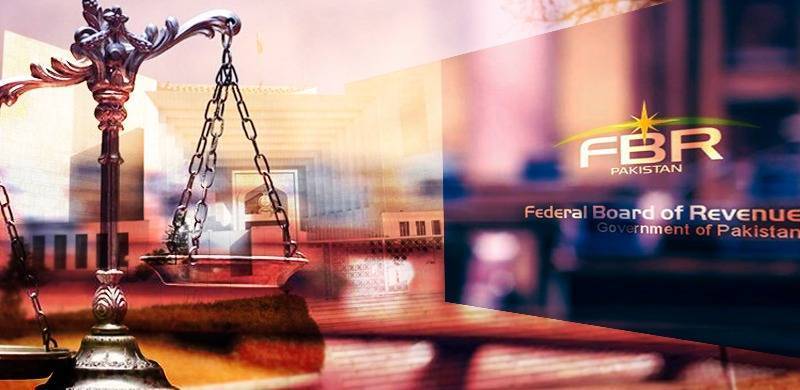In a landmark judgment safeguarding taxpayer rights and promoting transparency in revenue practices, the Supreme Court of Pakistan has declared that the Federal Board of Revenue (FBR) cannot issue recovery notices on the same day an appeal decision is served. The Court emphasized that such actions are in clear violation of the principles of justice, procedural fairness, and constitutional rights.
A three-member bench of the Supreme Court, led by Justice Athar Minallah and with a detailed judgment authored by Justice Ayesha Malik, held that the FBR’s immediate recovery actions violate the Income Tax Ordinance and taxpayers’ right to due process. The bench ruled that no recovery demand can be lawfully executed unless the taxpayer is first allowed a reasonable period to respond to the appeal decision.
The case revolved around several high-value tax demands issued by the tax authorities on the same day that decisions on appeals were communicated. One such notice involved a tax recovery amounting to Rs 2.92 billion. The notice was served without allowing the taxpayer any reasonable opportunity to prepare or seek legal remedies. Another involved a withholding tax demand of Rs 1.88 billion. Both cases were highlighted as examples of procedural overreach and disregard for fair administrative practices.
The Court interpreted Section 138 and Section 140 of the Income Tax Ordinance to clarify that the phrase “by the date” does not mean “on the date” when it comes to recovery. Instead, the law mandates that a taxpayer should be provided with a fair and reasonable timeframe to comply with the decision, seek remedies, or file a subsequent appeal.
Justice Ayesha Malik, in her opinion, pointed out that the power to recover taxes must not be exercised in an arbitrary or oppressive manner. She stated that the tax machinery should not act in a way that strips the taxpayer of dignity and constitutional protection. The judgment stressed that recovery without proper notice or time undermines the integrity of tax governance and can have irreparable consequences on a business’s operations and reputation.
Furthermore, the Supreme Court criticized the conduct of certain FBR officials who attempted to enforce these recoveries without procedural compliance. The judgment specifically warned against authoritarian interpretations of tax law that ignore the legal safeguards available to citizens. The Court reiterated that while the state has the right to collect taxes efficiently, it must be balanced with the obligation to uphold legal protections and rights of individuals and businesses.
The Court also highlighted that instant or same-day recoveries not only breach statutory interpretation but also contradict the essence of natural justice. Taxpayers are entitled to clarity, fair treatment, and adequate time to assess their legal standing and explore their rights under the law. A rush to recover revenue without affording a basic window for response leads to administrative injustice and erodes public trust in the revenue system.
This ruling sets a critical precedent for future tax litigation and administrative practices. It mandates tax authorities to reconsider the timing and manner in which notices are issued and enforces a culture of fairness and accountability in tax administration.
Legal experts have welcomed the verdict, stating that it strengthens the rule of law and provides a sense of security to businesses that fear arbitrary and immediate enforcement actions. It also reinforces the judicial stance that governance, especially tax governance, must be conducted with transparency, responsibility, and within the bounds of the law.
The judgment will likely have a far-reaching impact on the working of the Federal Board of Revenue and is expected to usher in reforms that ensure taxpayer protections are not just theoretical rights but practical guarantees.



Comments (0)
No comments yet. Be the first to comment!
Leave a Comment